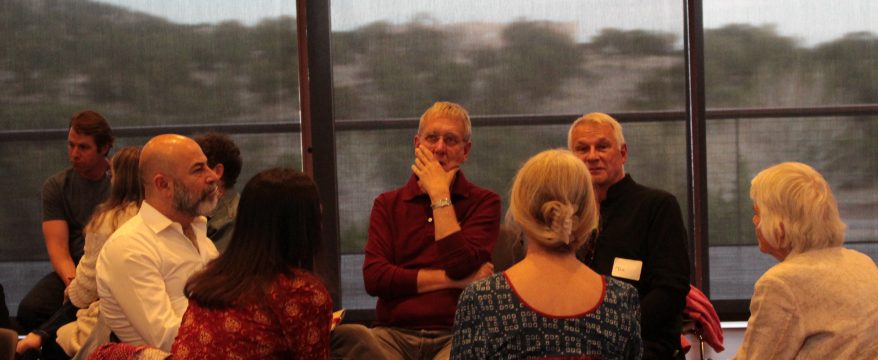“Don’t We Never Learn?” Part II: Learning and Transformation
Academy for the Love of Learning Founder and President Aaron Stern shared this letter with participants prior to the second of our anniversary offerings held on May 20th. We hope that you will join us on August 25th for Lenny’s Living Legacy: A Concert Celebration.
“Don’t We Never Learn?” Part II: Learning and Transformation
A dialogue with Aaron Stern, Founder and President of the Academy for the Love of Learning and Dr. Richard Davidson, Founder of the Center for Healthy Minds at the University of Wisconsin-Madison
On April 29th, we launched our yearlong anniversary celebration with a special viewing of Leonard Bernstein’s poignant one-act opera Trouble in Tahiti, followed by deep community reflection and dialogue on its meaning. The opera shows us the American Dream gone amuck, focusing too much on materialism and not enough on the wellbeing of human relationships, our own selves, and finding deeper meaning in life. The evening was entitled “Don’t We Never Learn?” a phrase spoken to me often during the last years of my mentor, Leonard Bernstein’s life, as he wrestled with the human condition – his own and collectively – and wondered whether we could indeed learn how to become better at being human beings.
I led participants through the opera, composed in 1951, pausing between scenes to reflect upon the impact and then we explored the meaning in small groups, through the lens of identified key themes – Romantic Love, Liberation, Psychology, Suffering/ Brokenness, Delusion, Patriarchy, Gender, Religion, Materialism, Competition, Colonialism, Race, Family, Systems, Learning, Waking up and Awareness! We noted that some of these themes were words and concepts unheard or barely thought of in the early 1950’s, when Trouble in Tahiti was written.
In a follow-up letter to the evening, I added to the conversation by naming some of the inspiring movements/human developments that have emerged over the past half century since the opera was written and called them possible “signs of intelligent life in our universe,” including the recent #MeToo movement, the ecology, social justice, civil rights and LGBTQ+ movements, the maturing of psychology and the human potential movement, the Mindfulness, Social Emotional Learning (SEL), Ethical Leadership and emerging Secular Ethics movements, and an entire new scientific field of study called Well-Being and Human Flourishing, as embodied by the Center for Healthy Minds at the University of Wisconsin-Madison.
All of these together, perhaps, are indicators that we indeed DO learn?!? But hold on…. not so fast.
Recognizing and intending these beautiful, hopeful aspirations and deep human longings for personal and collective wellbeing is clearly not the same thing as living them, sustaining them; indeed, transforming ourselves into becoming them.
Tonight, in our second exploration of “Don’t We Never Learn?”: Learning and Transformation, we hope to add to the inquiry as I enter into dialogue with my dear friend and colleague, the renowned neuroscientist Dr. Richard Davidson. Together, we will be in conversation about what we are learning, quantitatively and qualitatively, about the transformative impact of the Academy’s work. Dr. Davidson and his team at the Center for Healthy Minds at the University of Wisconsin-Madison have been doing an extensive study of our work over the past couple of years, and in this dialogue we will begin to explore their early findings.
In joining in partnership with the Center for Healthy Minds on this study, our hope was to validate more objectively our belief and substantial anecdotal evidence that there is a clear link between the transformative learning experiences at the heart of our work at the Academy and human flourishing. Though the studies are still underway, it is looking as if we are right. The way I like to say it is, “If we take the lid off learning, we will learn ourselves to a better world, individually and collectively.”
As many of you may know, Richie and I both are engaged with His Holiness the Dalai Lama and his Mind and Life Institute, on whose board I sit, where Richie and I both serve as Fellows, and where Richie also serves as Chief Scientific Advisor. We share a deep, abiding devotion to wellbeing and a global vision for transformation. Increasingly, the Academy has the opportunity to bring our important work to this table. Indeed, we are thinking globally and acting locally.
Thank you for joining us this evening as we continue to explore and highlight the human capacity to learn and wake up! Your presence at the Academy truly matters.


